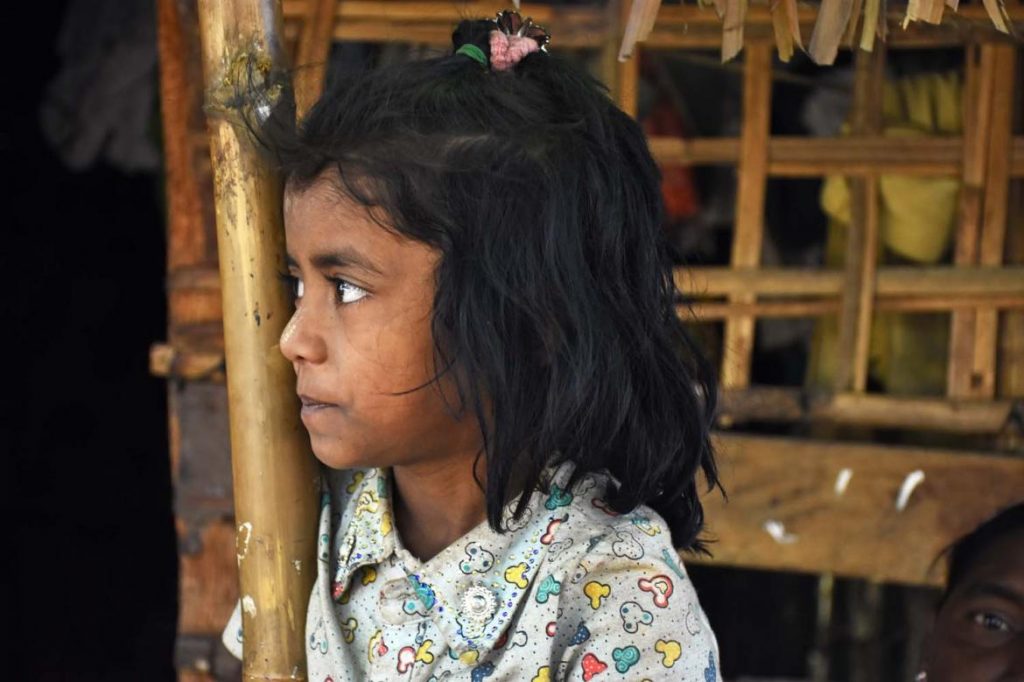Muslims in Rakhine State will continue trying to flee to other countries while they endure onerous travel restrictions, disrupted livelihoods and a miserable existence in camps.
By SITHU AUNG MYINT | FRONTIER
AFTER MILITANTS from the Arakan Rohingya Salvation Army attacked security posts in northern Rakhine State in August 2017, the Tatmadaw launched a clearance operation that resulted in about 700,000 Muslims fleeing to Bangladesh. They joined about 300,000 people who had sought refuge in Bangladesh after earlier waves of violence in Rakhine.
Despite extensive negotiations between Myanmar and Bangladesh on repatriation, not a single refugee has officially returned so far. Meanwhile, increasing numbers of Muslims – most of whom have been held in camps for the internally displaced since Rakhine was wracked by communal violence in 2012 – are trying to leave the state by sea in the hope of reaching Malaysia. Some Muslims who have escaped from internally displaced people’s (IDP) camps have travelled overland to Thailand. Many have been intercepted by the Myanmar authorities and sent back to the camps.
The evidence is clear that increasing numbers of Muslims are trying to flee Rakhine. Even before the obstacles to repatriating refugees from Bangladesh have been resolved, another problem is emerging because of the Muslims in Rakhine who are trying to leave the state by sea or land.
On November 25, the Myanmar navy intercepted a boat near Bok Island, off Tanintharyi Region, carrying 93 Muslims from Rakhine. The 28 men, 33 women and 32 children from the Dar Paing IDP camp, which is close to the coast in Sittwe Township and houses about 11,000 people, were handed over to police. Reports said they would be returned to the camp. They were reported to be heading for Malaysia.
Support more independent journalism like this. Sign up to be a Frontier member.
In a similar incident nine days earlier, a group of 106 Muslims from Rakhine was detained near Yangon when their stricken boat beached in Kyauktan Township. Most were said to be from the Thet Kae Pyin IDP camp in Sittwe Township, which holds about 5,880 people. Reports said they had been heading for Malaysia but after being ordered by the Thai navy to leave its waters their boat had run out of fuel and the vessel had drifted north. They were detained in Yangon for a few days before being returned to Rakhine.
Meanwhile, dozens of Muslims from Rakhine – who have long been subject to travel restrictions – have been caught heading overland to Thailand. Those detained so far this year include 11 at Minbu, Magway Region, on January 18; 21 at Nyaungdon, Ayeyarwady Region, on February 9; another nine at Nyaungdon on February 10; three at Danyawady, Rakhine, on March 10; 12 at Ann, Rakhine, on April 7; and six in Sittwe on November 24. Most Muslims in Rakhine are not officially recognised as citizens and they have been arrested under immigration laws for travelling within the country without permission.
The violation of tight travel restrictions by Muslims in Rakhine is hardly a new development but the number has risen since the first round of ARSA attacks on October 2016 resulted in a curfew and more rigorous checks on residents’ movements.
Fishing is the main livelihood of Muslims in northern Rakhine and the restrictions have affected their ability to earn a living. Fishermen who want to take their boats out to sea or work on trawlers are required to have a National Verification Card. Maungdaw in northern Rakhine had supported a large fishing industry before the militant attacks in October 2016 and August 2017 but it is no more. Along the coast road from Angumaw to Maungdaw there were once many Muslim villages whose inhabitants relied on fishing to make a living. These villages have been reduced to ashes and those who lived there now languish in Bangladesh.
The travel restrictions make life difficult for Muslims in many other ways. They cannot go into the forests and mountains to forage for food and products to sell, for example. The restrictions have also created difficulties for those who make a living from livestock breeding, raising poultry or small-scale trading. Deprived of ways to make a living, the Muslims in northern Rakhine have to rely on assistance from NGOs. The situation is even more desperate for the more than 100,000 people in IDP camps in Rakhine. For the past six years they have been living essentially under camp arrest and reliant on assistance and donations to survive.
Taking all that into consideration, it is little wonder that Muslims in Rakhine are trying to leave Myanmar in the hope of reaching Malaysia or Thailand. As the government works for the repatriation and resettlement of the refugees in Bangladesh, it also needs to address the circumstances of the Muslims who have chosen to remain in Rakhine and lift the restrictions that prevent them from making a living. Unless that happens, the number of Muslims leaving Rakhine by sea and land is likely to increase. Such a scenario would be a further setback for the government’s efforts to ease the pressure it is under from the international community over the Rakhine crisis.







